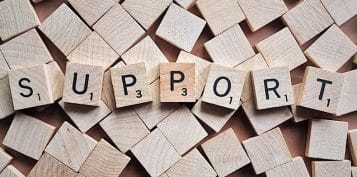How Does Gambling Affect the Brain
How does gambling affect the brain? Millions of people all over the world enjoy playing games of chance. Some enjoy spinning the reels, rolling the dice, or turning the cards on a regular basis. It’s exciting and fun, even if they don’t win. Understanding the effects of gambling on the brain could reduce the risk of your fun turning into an addiction.

Compulsive gambling is an ever-increasing problem that affects millions of players. When gambling becomes consistent, it often leads to addiction. While it’s not easy to reverse things once you’ve reached that point, you’ll find it less of a challenge if you know why gambling is addictive. Keep reading to find out more.
Gambling Effects on the Brain – Spike in Dopamine Levels
There are lots of things we do that make us feel good. Shopping, eating, and even drinking alcohol are all experiences we enjoy because of how they make us feel. However, if you go overboard with any of these enjoyable activities, it can transform the experience into a mental dependence.
Answering the question “how does gambling affect the brain?” requires an understanding of the psychology of gambling. However, it isn’t as cut and dry as you might think. However, it helps to explore how the brain works when we participate in enjoyable activities.
Gambling affects the levels of dopamine in your brain. Dopamine is a chemical messenger that evokes feelings of pleasure. The release of this pleasure chemical is what makes gambling addictive. The release of dopamine is what makes it so easy to gamble repeatedly without a second thought. Before you know what’s happening, your gambling for pleasure has turned into a habit and an addiction.
When someone has a severe gambling addiction, they can find themselves in a trance-like state in which they’re playing casino games for hours. Scientists have called this state “dark flow”.
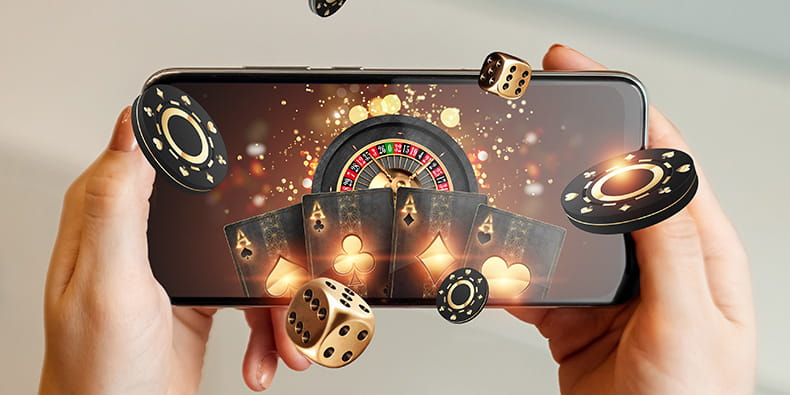
One of the problems with dopamine is that your brain can build up a tolerance over time. The reward system in your brain becomes overused. When you place the same bets as before, it fails to produce those good feelings you enjoyed previously.
Your brain’s reward system demands more dopamine, and to get that, you’ve got to take ever-increasing risks to achieve the same high. When your gambling addiction has reached this level, you’ll find it very difficult to stop playing casino games and placing bets.
Science has discovered that gambling effects on the brain include triggering dopamine levels, much the same as a person taking drugs. Compulsive gamblers have been known to experience withdrawal symptoms if they try to stop gambling. When a person has reached this state of addiction, professional help and support are required for them to recover from their addiction.
How Does Gambling Addiction Affect the Brain?
To answer the question how does gambling addiction affect the brain, you must fully understand what happens inside the brain of a gambling addict and what is happening in the different regions of your brain when you gamble. It’s the activity in certain regions that influence gambling behaviours directly.
To understand the effects of gambling on the brain, you must look at two regions of this organ: the prefrontal cortex and the ventral striatum. People who are addicted to gambling experience decreased activity in the prefrontal cortex and increased connectivity to the reward system. It may explain why gambling addicts struggle to control their impulses compared to other people.
Differences in the functionality of this area of the brain lead to struggles when weighing up the pros and cons of immediate vs later rewards and in understanding the consequences of their decision.
In terms of the ventral striatum, it’s also been shown to be less active for problem gamblers and relates to deficiencies in their brain reward pathways. Such underactivity draws them to reward-stimulating activities such as gambling. Scientists have found that a primary interest for people suffering from gambling addiction is not the money but making up for the deficiencies in their reward system.
Are Some People More Prone to Gambling Addiction than Others?
Research has shown that some people are more likely to gamble. As we’ve already mentioned, this is often because of a genetic predisposition for impulsivity and reward-seeking behaviours. The reason for such behaviours is a less active prefrontal cortex and an underactive brain reward system in the ventral striatum area of the brain.
The Factors That Might Provoke Problem Gambling
It’s still not certain what commonly causes gambling addiction, but researchers have identified some risk factors. They are:
- Mental health disorders
- Age
- The age a person starts gambling
- Sex
- Peer pressure
- Medications
- Personality characteristics
- Self-esteem
- Stress
- Early wins
- Cultural factors
Mental Health Disorders
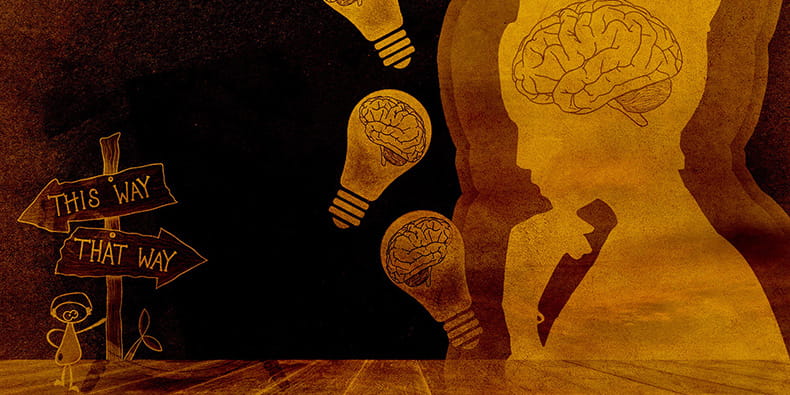
Mental health disorders make you more vulnerable to gambling addiction. You might use gambling to escape your emotional pain. Gambling is very powerful because it can take you far away from your problems. It also stimulates the release of dopamine, making you feel happy and confident. It’s a way of self-medication.
Common co-occurring mental health disorders include depression, bipolar disorder, generalised anxiety disorder, substance use disorder, antisocial personality disorder, obsessive-compulsive disorder, and attention deficit hyperactivity disorder.
Age
Younger people tend to be more prone to developing a gambling disorder. Statistics released by the Journal of Child and Adolescent Behaviour in the United States back up this statement. They have found that approximately 5% of US teenagers are compulsive gamblers compared to only 1% of adults.
The Age You Start Gambling
Studies undertaken in previous years found that a high percentage of adults with a gambling disorder were teenagers when they started gambling. People between the ages of 18 and 24 are most at risk of developing gambling problems. Their brains are still developing, and logic and emotion aren’t fully formed, thus resulting in the strong neglect of responsible gambling.
Sex
Recent meta-analysis has found that men are at a higher risk of compulsive gambling. According to one study, this could be because men are more likely to experience social anxiety and take risks. Men are also more attracted to gambling because of their impulsiveness, the chance of winning rewards, the excitement of gambling, and their quest for immediate satisfaction.
Peer Pressure
Peer pressure, especially during adolescent years, can affect a person’s desire to gamble. There are 4 different types of peer pressure: spoken, unspoken, direct, indirect, and negative/positive peer pressure. Having friends or family who suffer with a gambling addiction is also likely to make a person gamble.
Medications
Medications such as dopamine agonists often list compulsive behaviours as one of the side effects. You should be careful when taking such pharmaceuticals and consult yourself with a doctor. No compromises should be made with your health, be it physical or mental.
Personality Characteristics
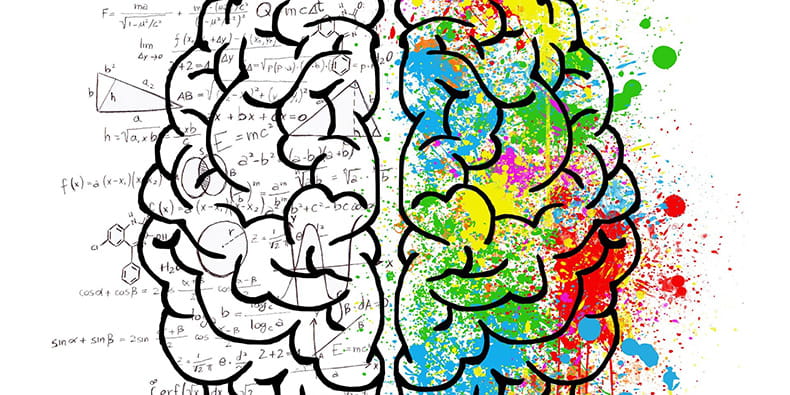
Personality characteristics such as low self-directedness and harm avoidance are more at risk of developing an addiction to gambling. Characteristics of harm avoidance are shyness, excessive worrying, pessimism, and being fearful or doubtful. A person who displays low self-directedness finds it difficult to accept responsibility for any decision they make and their actions.
Self-Esteem
Studies have shown that there is a connection between a person with low self-esteem and addictive behaviours such as substance use and compulsive gambling. A person with low self-esteem might use gambling as a way of breaking free from their feelings of worthlessness and self-doubt temporarily.
Stress
Many people use gambling to relax and help them better manage high-stress levels, and once a person discovers what an effective escape it can be, they’ll find it increasingly hard to resist. They’ll continue to gamble even if it increases their stress in the long run.
Early Wins
A person who wins when gambling for the first few times might expect to repeat the wins in the future. Gambling effects on the brain include the hope that they’re going to hit big and continue to play. When you combine the hope of winning with other factors, it can lead to gambling addiction.
Cultural Factors
A person’s involvement with gambling and predisposition towards gambling addiction may be influenced by their cultural background. Gambling is more prevalent in certain ethnic minorities, such as people who identify as Hispanic.
Military veterans and personnel have also been shown to be at a higher risk of developing a gambling addiction. A common cause, in this case, is a post-traumatic stress disorder.
Problem Gambling – How it Affects Your Daily Life?
Problem gambling can affect many aspects of a person’s life. What started as a harmless bit of fun and a harmless diversion can lead to an unhealthy obsession and some very serious consequences. A gambling problem can lead to gambling debt, financial disaster, can put a strain on relationships, and even interfere with work. A gambling addict might find themselves doing things they hadn’t thought possible such as stealing money to gamble or running up massive debt.
| Advantages of Gambling | Disadvantages of Gambling |
|---|---|
| 💰 Winning Money | 😟 Addiction |
| 😛 Entertainment | 💷 Lose Money |
| 😂 You Feel Like a Winner | 💳 Debt |
| 😎 Meet New People | 🙍 Depression |
| 🧮 Improves Your Math Skills | 😞 Destroys Relationships and Friendships |
What You Can Do if You Think You’re Addicted – Tools & Strategies
There are signs you can look for that might indicate you have a gambling problem, such as being secretive about your gambling, struggling to control it, and gambling even when you have no money. The biggest hurdle to overcome for anyone with an addiction is to realize and admit there is a problem.
Self-Discipline Strategies and Tools
Once you’ve done that, there are lots of things you can do to break the habit and steps to take that will change your life for the better.
Start by setting some personal goals for the short and long term. These will help you stay focused on cutting down your gambling or giving it up altogether. Set yourself the target of not gambling for a month or saving a certain amount of money. Don’t forget to reward yourself when you achieve your targets.
Look for activities you can use to replace gambling so you can keep yourself occupied and concentrate on other things. Practical activities you should consider include playing team sports, visiting the gym, gardening, running, hiking, volunteering, or joining social groups.
If you think you’re spending too much time gambling, consider self-exclusion from gambling. You ask a gambling provider to exclude you for a length of time. It might be just six months, a year, or even longer. There is also the option of signing up for GAMSTOP’s service online. The service is free for users, but only available for UK residents. The gambling websites and apps also must be licensed in the UK.
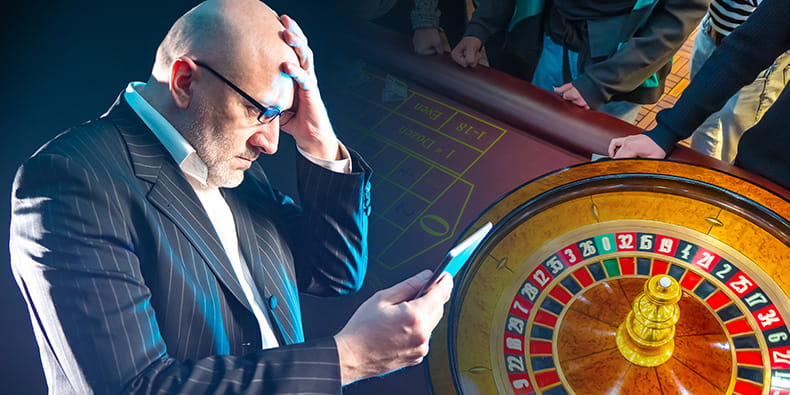
Other things you can do to help you stay in control include setting a money limit or time limit in advance. Only ever gambling with money, can you realistically afford to lose. Never chase your losses or gamble when you’re upset or depressed. Take frequent breaks because gambling continuously causes you to lose track of time as well as your perspective.
Don’t use drugs, and never drink alcohol while gambling. Both cloud your judgment, and when your judgement is impaired, your main defence against letting gambling get the better of you is gone. You might be able to join a local support group. These are organisations that are run by people with similar histories and experiences.
Gamblers Anonymous is one well-known support group. It’s specifically for people with gambling problems. Meetings provide an opportunity for those harmed by gambling to meet and provide mutual support. You’ll find meetings available across the UK. Visit the organisation’s website, and you’ll be able to check whether there’s a group near you.
Organisations That Offer Help
For anyone with a severe gambling problem, there is professional gambling support available. You’ll get help finding ways to avoid gambling and fine-tune the strategies you might already by using.
There is evidence that suggests gambling addiction can be treated in much the same way as other addictions. Cognitive behavioural therapy might be an option, but there are also support and treatment groups that can help if you want to stop gambling. GamCare is an organisation that offers free support, counselling, and information for problem gamblers. Face-to-face counselling is available or there is a 24/7 helpline.

If you live in England or Wales, you can refer yourself to the National Problem Gambling Clinic. This is an NHS service that provides psychological therapy, medication, as well as aftercare for problem gamblers.
The National Gambling Treatment Service works alongside the NHS. It provides online, face-to-face, and free telephone treatment for groups and individuals.
GamAnon is an anonymous support organisation for people who have been affected by a friend or family member’s problem gambling. Meetings are online or in face-to-face groups.
Conclusion
People have been, but it’s only recently that gambling has become a problem for so many people. Lots more research is being done to try to answer the question “How does gambling affect the brain?”
The best online casino sites in the UK recognise the issues that some players face, and all have gambling policies. Such policies ensure gambling takes place in a regulated environment in which the potential for harm associated with gambling is kept to a minimum. People visiting these sites are encouraged and given the necessary tools and information to ensure they make informed decisions about their participation.
FAQs About How Gambling Affects the Brain
We hope we’ve enlightened you about gambling’s effects on the brain and how gambling addiction affects the brain. If you still got some unanswered questions, you might find the answers below. We’ve provided some brief answers to some of the more common questions.
Similar Articles


